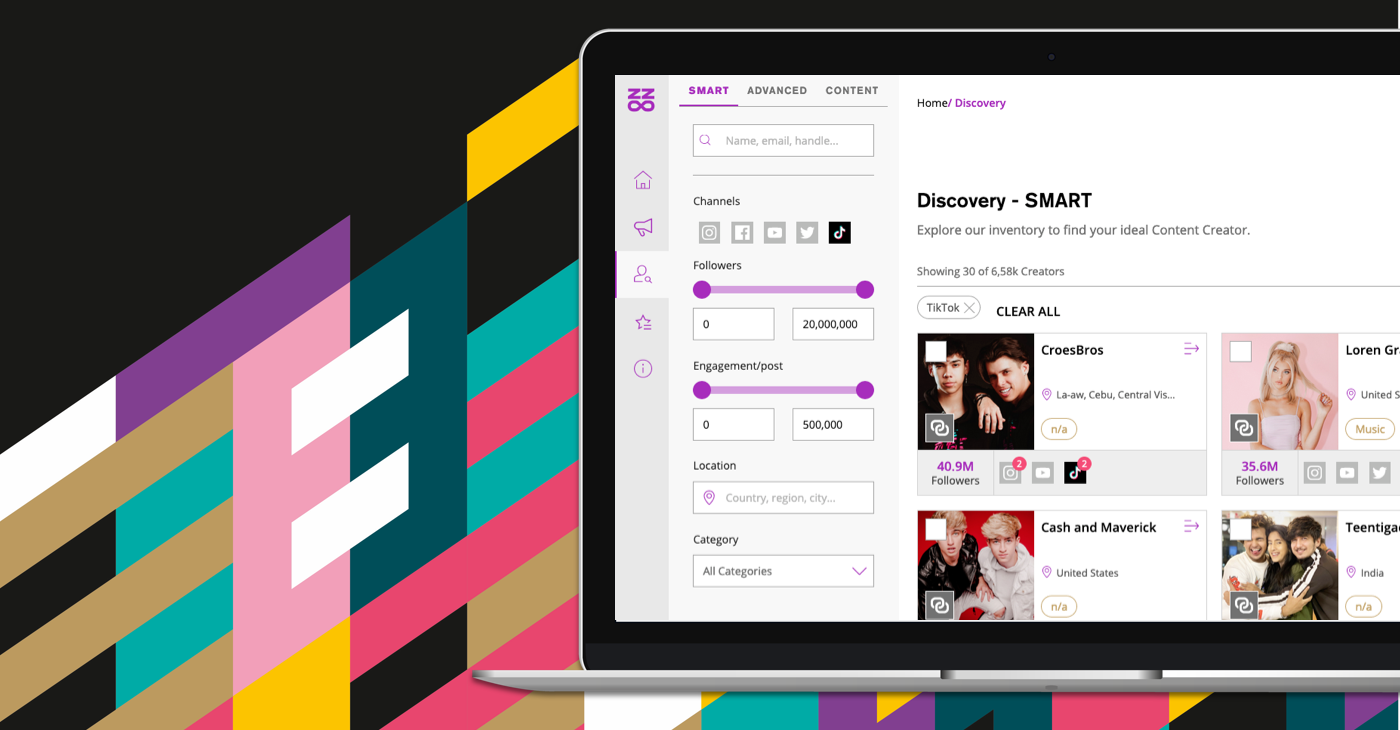Come è emerso da una nostra ricerca recente, le misurazioni standardizzate, così come i fake follower e il controllo dei contenuti, sono in cima alla lista delle sfide di molti marketer. Sempre più curiosi, abbiamo deciso di approfondire ulteriormente questo argomento con Yenan Wang, Content e Influencer Director di PHD Media. Yenan ha condiviso il suo punto di vista con noi.
Raccontaci qualcosa di te e di quello che fai. Quali sono state le esperienze lavorative che ti hanno portato a specializzarti nell’influencer marketing?
Sono Content e Influencer Director da PHD Media e gestisco il team di content e influencer marketing.
Ho sempre avuto una passione per la scrittura e i social media quando ero all’Università, e amo curare il mio blog personale (all’epoca era MySpace!). Ho iniziato la mia carriera nel digital marketing e poi mi sono orientata verso il Social Media Marketing e il Content Marketing. La creazione dei contenuti va di pari passo con i social media, motivo per il quale mi sono ritrovata nell’affascinante mondo dell’influencer marketing.
Qual è secondo te la sfida più grande che sta affrontando l’influencer marketing al momento?
È fuori dubbio che l’influencer marketing funzioni, ma la questione della misurabilità resta una delle sfide più grandi dei marketer per aumentare l’investimento. Finché i brand non possono comparare l’investimento in influencer con le altre forme di adv, l’intero settore non passerà da un approccio “test-and-learn” a un investimento stabile sul piano media. Secondo me, una delle chiavi di misurazione più efficace continua ad essere il numero di visualizzazioni, per esempio quale percentuale dei follower di un influencer ha realmente visto il contenuto.
Finché i brand non possono comparare l’investimento in influencer con le altre forme di adv, l’intero settore non passerà da un approccio “test-and-learn” a un investimento stabile sul piano media.
Quali passi stai facendo come professionista o azienda per fronteggiare la sfida?
Usiamo piattaforme di influencer marketing sia per entrare in contatto con gli influencer giusti per i nostri clienti sia per sfruttare i loro report avanzati e i dati di true reach così da ottimizzare i risultati dei report.
Quali sono alcuni degli obiettivi comuni ai diversi brand con cui lavori?
In genere chiedono 3 cose: aumentare la brand awareness, orientare verso le conversioni (per esempio il download di un’app), testare i prodotti.
Quali sono alcune delle best practices che segui quando gestisci campagne di influencer marketing?
All’influencer marketing dovrebbe essere assegnato presto un posto a tavola con le altre strategie di marketing. Optare per un approccio integrato e acquisire una conoscenza piena degli obiettivi è un punto cruciale per il successo delle strategie di influencer marketing.
Optare per un approccio integrato e acquisire una conoscenza piena degli obiettivi è un punto cruciale per il successo delle strategie di influencer marketing.
Quale tipologia di contenuti funzionano meglio per l’influencer marketing secondo la tua esperienza?
I contenuti che dimostrano sia autenticità che creatività.
Puoi fornirci degli insight della situazione attuale dell’industry?
Quelli che consideriamo influencer “micro-medi” sono ideali per le collaborazioni con i brand. Stanno diventando risorse affidabili per dare consigli e raccomandazioni ai follower. Questi influencer potrebbero non avere un seguito massiccio o numero di impression elevato come le star dei social, ma hanno un community più intima e personale generando un engagement rate che va dal 5 al 25%.
C’è qualcosa che pensi non sia ancora stato compreso appieno dai brand per quanto riguarda l’influencer marketing?
L’influencer marketing considerato come paid media non è come gli altri media tradizionali nei quali i brand (o le loro agenzie) esercitano un controllo totale sulla creatività, su quale sia il suo utilizzo e su come i consumatori ne saranno coinvolti. L’autenticità è un fattore particolarmente cruciale nell’influencer marketing e i brand dovrebbero riconoscere che gli influencer con cui lavorano in genere hanno una maggiore comprensione rispetto ai brand stessi in merito a cosa possa piacere ai propri follower.
Di certo, i marketer hanno bisogno di mantenere una certa supervisione sulle campagne di influencer marketing per assicurare che questi seguano tutte le normative applicabili, ma dovrebbero invitare gli influencer a dare sfogo alla loro creatività e evitare di controllarli in maniera rigida.
Per rimanere sempre aggiornato sul mondo dell’influencer marketing iscriviti alla nostra newsletter!
Yenan Wang- Content & Influencer Director, PHD Media
Content e Influencer Marketing Director con un background diversificato e con esperienze in diversi campi tra cui Influencer Strategy and Development, Social Media Advertising, e Digital Pr.
Questo articolo è disponibile anche in: Inglese


